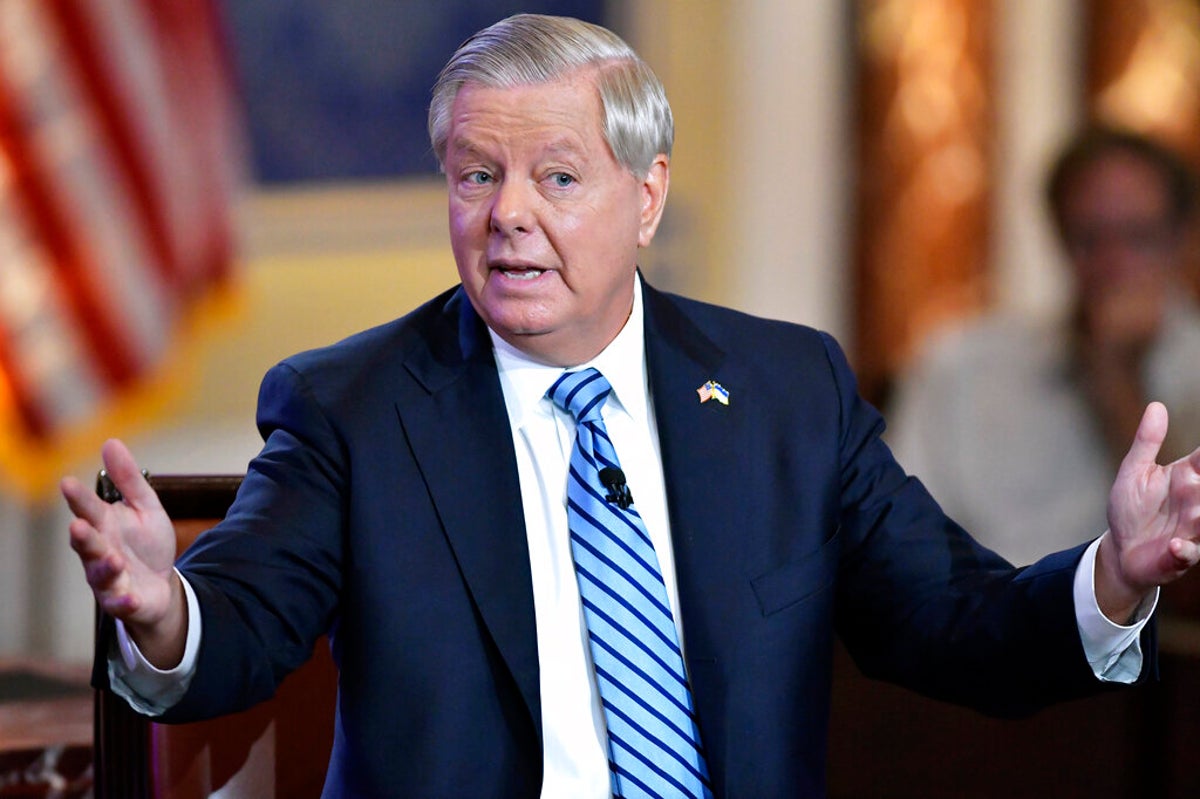
For the second time in a week, a federal judge in Georgia has ordered South Carolina Senator Lindsey Graham to give evidence before the Fulton County grand jury investigating former president Donald Trump’s attempts to overturn the 2020 election in the Peach State.
Earlier this week US District Judge Leigh Martin May rejected Mr Graham’s motion to quash a subpoena ordering him to give evidence before the special grand jury, which is operating under the supervision of Fulton County District Attorney Fani Willis.
According to a copy of the subpoena viewed by The Independent, the Georgia judge who signed off on the document found that Mr Graham “questioned Secretary Raffensperger and his staff about reexamining certain absentee ballots cast in Georgia in order to explore the possibility of a more favourable outcome” for the then-president, who in November 2020 became the first Republican to lose the Peach State’s electoral votes since Bill Clinton defeated then-president George HW Bush in 1992.
The South Carolina Republican had claimed immunity from having to testify before the grand jury because he is a “high-ranking government official”, and because the US Constitution’s “speech or debate” clause prohibits the court from requiring him to appear. But Judge May rejected both of those claims, writing that “there are considerable areas of potential grand jury inquiry” which would not be covered by the “speech or debate” clause, which only shields senators official acts from scrutiny.
Mr Graham had filed a second motion asking the judge to stay her ruling and issue an order to keep the grand jury from taking any action on the subpoena before the completion of his appeal to the US Court of Appeals for the Fourth Circuit. But Judge May rejected his request, writing in a ruling on Friday that he had not shown a likelihood that he would prevail in his appeal.
“Senator Graham presents no persuasive argument as to why this holding raises a ‘substantial case on the merits’ given how clearly the Supreme Court has stated that actions which are fundamentally political in nature — such as speeches outside of Congress or ‘cajoling’ or ‘exhorting’ officials from different branches of government to take certain actions — are not protected by the speech or debate clause,” she wrote.
Judge May added that she “could not simply accept Senator Graham’s conclusory characterizations of these phone calls as only containing legitimate legislative factfinding inquiries and thereby ignore (and indeed reject) the fact that the substance of these calls has been a source of public dispute and disagreement by some of the calls’ other participants”.
She added that she had found “no basis for concluding that [her] holdings as to these issues are likely to be reversed on the merits,” and said any other decision “would allow any sitting senator to shield all manner of potential criminal conduct occurring during a phone call merely by asserting the purpose of the call was legislative fact-finding—no matter whether the call subsequently took a different turn”.
Continuing, Judge May wrote that Mr Graham’s arguments were “entirely unpersuasive” and “[did] not even demonstrate a ‘substantial case on the merits’”.







